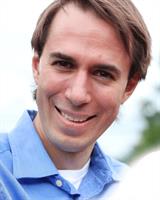Here is an interview with David R. Schneider of Cornell University which talks about his experience and perspective as faculty of the academic equivalency program. Happy SEPtember!

This interview was done in 2022.
Q2. What is one of your proudest professional achievements?
» My proudest professional achievement is receiving multiple recognitions from the Obama White House Office of Science and Technology Policy for my work in engineering education.
Q3. What skills do you think a systems engineer should develop during their education?
» We could write a book on this, but if I had to focus on one skill, it's not enough just to learn SE methodologies & techniques in an academic bubble but students need to develop the ability to apply what they learned across a variety of industries and societal challenges as well as across teams of highly varied expertise.
Q4. What was your university’s motivation behind joining the academic equivalency program?
» Motivation for our university to start an academic equivalency program is a desire to improve our curriculum, offer greater value to our students and the companies they work for, and grow the SE community.
Q5.What do you see as the benefits of the academic equivalency program for a university and a student?
» For the university, it helps to ensure that the curriculum is well-aligned to the INCOSE methodologies and hence has significant professional value for our students. It also distinguishes the course(s)/program offering academic equivalency from peer institutions. For students, they too earn additional distinction as it is not just the institution stating their SE skill capability but the student has demonstrated that they met the larger standard established by INCOSE.
Q6. What methods do you use to teach SE courses effectively?
» Like a movie special effects artist, we use a variety of techniques to keep the audience engaged. The most important aspect in being effective in teaching SE material though is often to help ensure that students understand its purpose and value. Sometimes this requires putting students into situations where they get "burned," a bit, by using their own non-SE approaches they may be more used to. But this only helps students to recognize the SE value even further as they see how it can help them from being burned again in a real-life situation.
Q7. How do your SE courses help students to deepen their understanding of systems engineering?
» Students often come in to the course with at best a cursory knowledge of what SE is, even if they've supposed undergone significant internal training within their companies. They may even know the names of various SE professional practices and attempted to perform some of them to what they believed was a satisfactory level. Our courses help students better understand what needs exist that the SE practices help meet, as well as the difference between just doing them and doing them well. It is the ability to make a positive impact.
Q8. How do your SE courses differ from those at other universities?
» Our courses tend to take a more applied approach. For example, it is not enough to merely know how to create an SE diagram, but students must be able to recognize its value in the overall life-cycle process, how the diagram can be used effectively or ineffectively, and how it can be combined with other practices for even greater impact. We aim for all of our students to graduate with examples of proven SE experience that they can showcase to a current or future employer to demonstrate the value they can bring to their teams.
Q9. What is your advice for universities or institutes considering applying for academic equivalency?
» It is a highly worthwhile endeavor but make sure that you give yourself enough time to appreciate and integrate any new academic equivalency material into your own curriculum.
Q10. How can we reach out to you?
» You can reach me at : https://www.linkedin.com/in/david-schneider-6b87a414/
Know more about Cornell University's experience with academic equivalency from here.